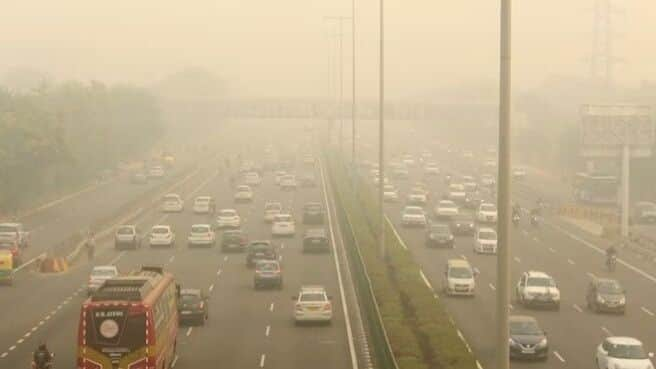SC extends GRAP-4 pollution curbs in Delhi until further notice
What's the story
The Supreme Court has directed that Stage 4 anti-pollution measures, under the Graded Response Action Plan (GRAP), will remain in place in Delhi until further notice.
The decision comes as the city's Air Quality Index (AQI) hit a staggering 486, pushing it into "severe plus" category.
The directive is being heard by a bench of Justices Abhay S Oka and Augustine George Masih, who are hearing a petition on Delhi's air pollution crisis.
Delayed action
SC criticizes delay in implementing anti-pollution measures
The Supreme Court has taken both the Delhi government and the Commission for Air Quality Management (CAQM) to task for their late implementation of stringent measures under GRAP.
The court pointed out one particular lapse where Stage 3 measures were invoked only after pollution reached an AQI of 400.
Justice Oka questioned this delay, asking, "How can you take risk in such matters of delaying the applicability of GRAP?"
Court's mandate
SC mandates court approval for scaling down measures
The Supreme Court has further clarified that no reduction in preventive measures will be permitted without its consent, even if AQI levels drop below 450.
The court stated unequivocally, "You will not go below Stage 4 (of GRAP) without the permission of this court."
This comes after the CAQM announced stricter controls under GRAP-4, including a ban on truck entry and a halt to construction at public projects.
Pollution sources
SC addresses multiple sources of Delhi's pollution
The Supreme Court has also focused on other factors responsible for Delhi's pollution. These include stubble burning, firecrackers, vehicular emissions, and industrial pollution.
The court had earlier slammed the Delhi Police for poor implementation of a firecracker ban and pulled up Punjab and Haryana for not adhering to stubble burning bans.
Fundamental right
SC reaffirms right to pollution-free environment
On November 18, parts of Delhi recorded AQI levels above 700.
Taking cognizance of the shocking situation, the Supreme Court reiterated that living in a pollution-free environment is a fundamental right under Article 21 of the Constitution.
The hearing on the matter will continue later in the day.
